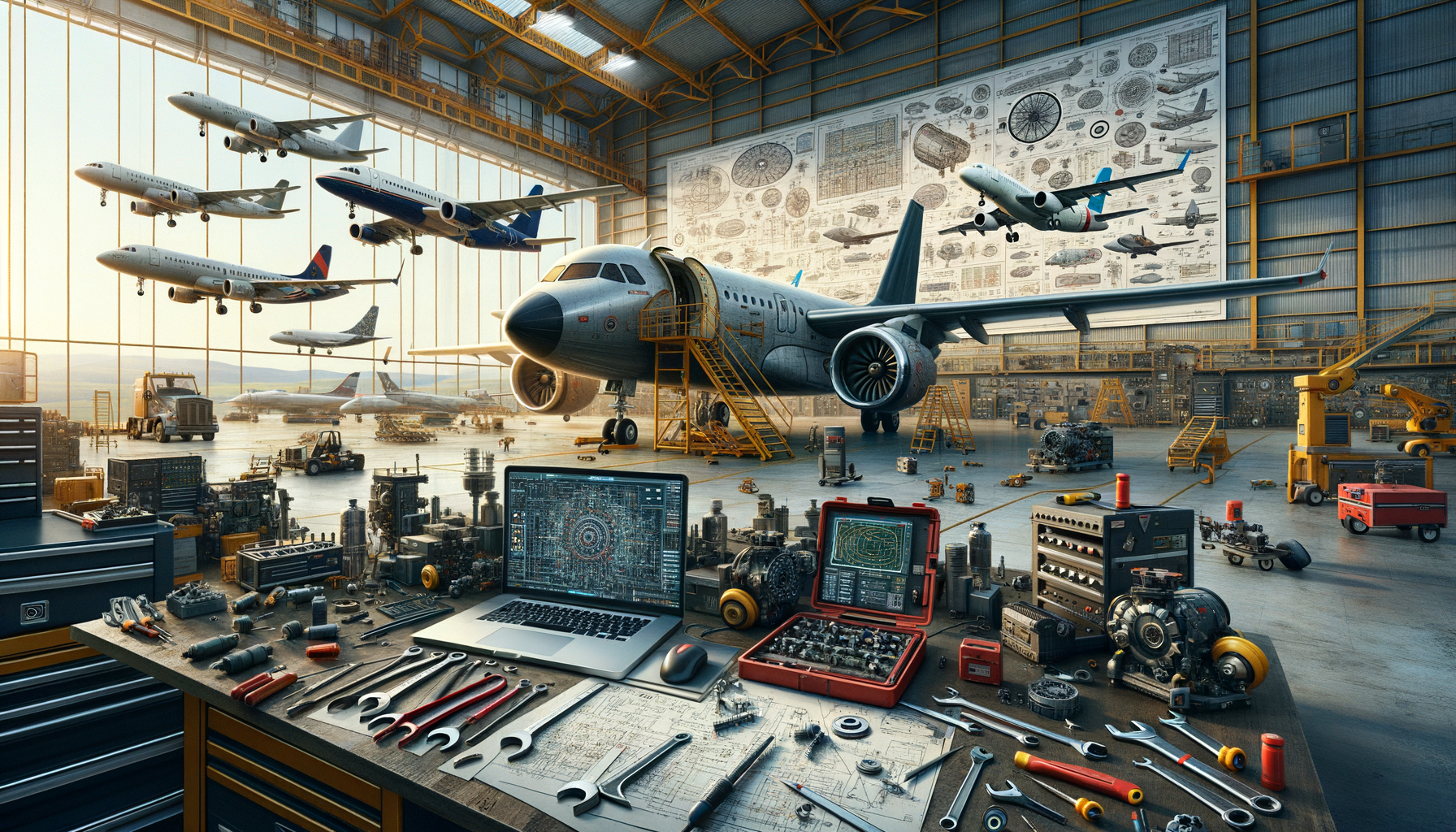Introduction to Aviation Maintenance Training Programs
Aviation maintenance is a critical field that ensures the safety and efficiency of aircraft operations. As air travel continues to expand globally, the demand for skilled aviation maintenance technicians is on the rise. Aviation Maintenance Training Programs play a pivotal role in preparing individuals for this demanding and rewarding career. These programs are designed to equip students with the necessary skills and knowledge to maintain and repair aircraft, ensuring they meet stringent safety standards. The importance of these programs cannot be overstated, as they form the backbone of aviation safety and reliability.
These training programs cover a wide range of topics, from basic aircraft systems to advanced maintenance techniques. They provide hands-on experience, allowing students to work on real aircraft components and systems. This practical approach ensures that graduates are job-ready and able to handle the complexities of modern aviation technology. Furthermore, these programs are often aligned with industry standards and regulations, ensuring that students receive education that is both relevant and up-to-date.
In this article, we will delve into the various aspects of aviation maintenance training programs, exploring their structure, content, and the career opportunities they offer. We will also discuss the benefits of pursuing a career in aviation maintenance and the skills required to succeed in this field.
Core Components of Aviation Maintenance Training
Aviation maintenance training programs are meticulously structured to cover a comprehensive range of subjects essential for maintaining aircraft. These programs typically include both theoretical and practical components, ensuring a well-rounded education for aspiring technicians. One of the primary focuses is on understanding the mechanical and electronic systems of an aircraft, which are crucial for diagnosing and fixing issues efficiently.
The curriculum often includes subjects such as:
- Aircraft Structures: Understanding the design and construction of aircraft frames and skin.
- Powerplant Systems: Covering the operation and maintenance of aircraft engines.
- Avionics: Focusing on the electronic systems used for navigation, communication, and control.
- Hydraulic and Pneumatic Systems: Essential for controlling various aircraft functions.
- Safety and Regulations: Emphasizing compliance with aviation safety standards and regulations.
Hands-on training is a significant aspect of these programs, as it allows students to apply theoretical knowledge in real-world scenarios. This practical experience is invaluable, as it prepares students for the challenges they will face in the field. Additionally, many programs offer simulation-based training, providing students with the opportunity to practice on virtual aircraft systems before working on actual equipment.
By completing a comprehensive aviation maintenance training program, students are well-prepared to take on roles in various sectors of the aviation industry, from commercial airlines to private aviation companies.
Career Opportunities and Advancements in Aviation Maintenance
The aviation industry offers a wide array of career opportunities for those who complete aviation maintenance training programs. Graduates can pursue roles as aircraft maintenance technicians, where they are responsible for performing routine inspections, troubleshooting issues, and conducting repairs. These positions are vital for ensuring the safety and airworthiness of aircraft.
For those seeking career advancement, there are opportunities to specialize in areas such as advanced aircraft systems maintenance training. Specializations can lead to roles such as avionics technicians or powerplant specialists, where technicians focus on specific systems within an aircraft. These advanced roles often come with increased responsibilities and higher earning potential.
Moreover, the aviation industry is constantly evolving, with new technologies and advancements shaping the future of air travel. This evolution creates a continuous demand for skilled technicians who are adaptable and willing to learn. Professional aviation maintenance training programs often include modules on emerging technologies, ensuring that technicians remain at the forefront of industry developments.
In summary, a career in aviation maintenance is not only rewarding but also offers a pathway to continuous learning and professional growth. As the industry continues to expand, the need for qualified technicians will only increase, making it an excellent field for those interested in aviation and technology.




Leave a Reply